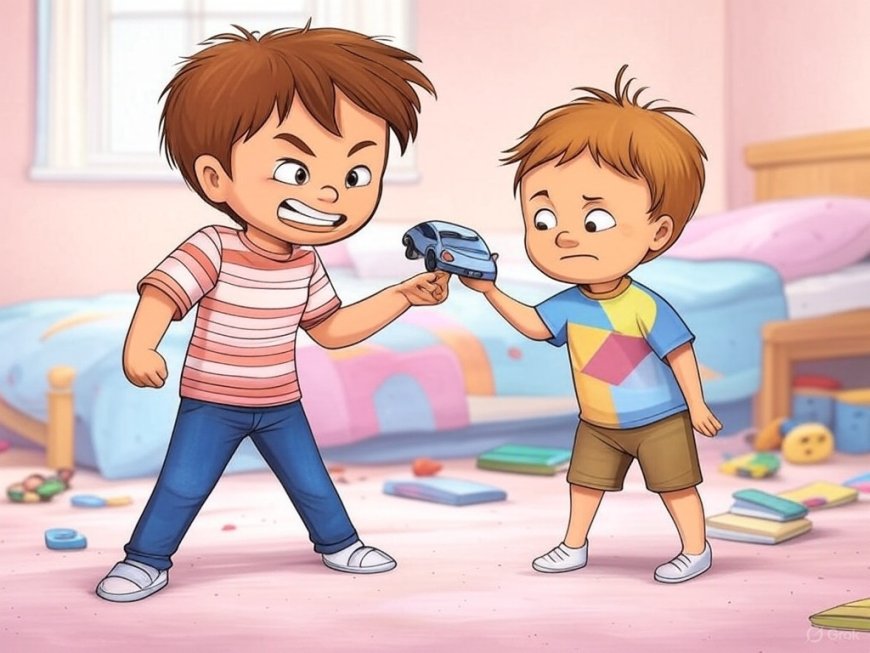From Rivalry to Resilience: Rebuilding Stronger Bonds with Your Adult Siblings
Rebuild and strengthen your adult sibling relationships with expert tips, communication tools, and insights into family dynamics. Learn how to go from rivalry to resilience.

Sibling relationships are often our longest-lasting familial ties — outliving parents, outpacing friendships, and tethered to a shared childhood history. Yet, many adult siblings find themselves estranged, emotionally distant, or stuck in old rivalries. If you’re looking to repair or deepen your bond with a brother or sister in adulthood, you’re not alone — and it’s never too late.
In this article, we explore the roots of sibling rivalry, how those patterns evolve over time, and the actionable steps you can take to nurture healthier, more resilient relationships with your siblings as adults.
The Origins of Sibling Rivalry
Sibling rivalry often begins in childhood — a natural outcome of competition for attention, approval, or resources. Parents may unintentionally fuel this by comparing children or assigning rigid roles like “the smart one” or “the troublemaker.” According to the Child Mind Institute, these labels can follow siblings well into adulthood, creating long-term emotional distance.
But rivalry doesn’t always stem from conflict. Sometimes, it’s born from unaddressed emotional wounds, jealousy, favoritism, or a lack of validation. Left unresolved, these issues can manifest in adulthood as:
-
Passive-aggressive behavior
-
Infrequent communication
-
Avoidance during family gatherings
-
Lingering resentment or blame
Understanding these dynamics is the first step toward change.
Why Adult Sibling Relationships Matter
Strong sibling bonds are associated with emotional stability, lower rates of depression, and increased resilience during life transitions like the loss of a parent, career setbacks, or personal illness. As reported by Harvard Health Publishing, emotionally close siblings offer support that is uniquely different from friends or partners due to their shared upbringing and long-term familiarity.
1. Reflect on the Past, but Focus on the Present
While it’s important to acknowledge how childhood shaped your dynamic, healing begins in the present. Ask yourself:
-
Are you holding onto outdated narratives about your sibling?
-
Do you still see them through the lens of childhood roles?
-
Have they changed — but your expectations haven’t?
Therapist-recommended practices like journaling, writing an unsent letter, or talking with a mental health professional can help untangle your feelings. Platforms like Psychology Today offer directories to find licensed therapists who specialize in family dynamics.
2. Communicate With Intention and Openness
Rebuilding trust requires consistent, intentional communication. Instead of waiting for a holiday or crisis to talk, make the first move:
-
Send a text just to check in.
-
Share a memory and ask for theirs.
-
Apologize if needed, without expecting one in return.
Avoid rehashing old arguments or assigning blame. Use neutral, “I”-focused language:
“I miss how close we used to be.”
“I’d like us to reconnect.”
If conversations are difficult or emotionally charged, resources like the Gottman Institute’s Communication Skills can provide strategies for healthier dialogue.
3. Redefine the Relationship on New Terms
Adult relationships can’t thrive if they’re built on outdated dynamics. Rather than recreating your childhood bond, consider what kind of relationship would work now.
-
Are you looking for emotional closeness or just mutual respect?
-
Would regular phone calls help?
-
Could shared experiences — like a hobby or travel — rekindle connection?
Some siblings bond best by doing, not talking. Volunteering together, planning a family event, or even starting a joint project can offer neutral ground for connection.
4. Accept and Respect Differences
One of the biggest challenges in adult sibling relationships is recognizing how much each person has changed — politically, spiritually, emotionally, or geographically. Siblings often grow apart because they fail to respect these differences.
You don’t need to agree with your sibling’s life choices, but you can choose curiosity over judgment. According to Greater Good Science Center, mutual respect is key to sustainable family relationships.
5. Address Family Triggers Proactively
Often, the tension between siblings is exacerbated by extended family situations — inheritance issues, caregiving duties, or parental favoritism. These topics are emotionally loaded and can reopen old wounds.
Experts at AARP recommend assigning roles early and clearly when dealing with family caregiving or estate planning. Consider using a mediator or family therapist for difficult conversations to avoid falling into combative patterns.
6. Seek Professional Help if Needed
If your sibling relationship has reached a breaking point — or if there's a history of abuse, estrangement, or deep emotional trauma — seeking professional guidance may be necessary. Family therapy can provide a structured space to address long-standing conflicts with the help of a trained third party.
Look into local therapy centers or reputable online platforms like Talkspace or TherapistAid that offer exercises and worksheets specifically for sibling reconciliation.
7. Celebrate the Progress
Rebuilding sibling bonds won’t happen overnight. Celebrate small wins: a good conversation, a shared laugh, or a simple act of kindness. These moments are bricks in the foundation of a healthier relationship.
Final Thoughts: You’re Not the Same Kids Anymore
Adult sibling relationships aren’t about returning to childhood closeness — they’re about evolving into a new phase of mutual understanding, respect, and care. With effort, empathy, and patience, even the most strained relationships can transform into sources of strength.
Let go of who your sibling was. Embrace who they are. And in doing so, allow yourself to grow too.
What's Your Reaction?
 Like
0
Like
0
 Dislike
0
Dislike
0
 Love
0
Love
0
 Funny
0
Funny
0
 Angry
0
Angry
0
 Sad
0
Sad
0
 Wow
0
Wow
0



















































